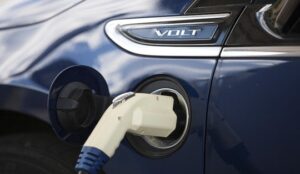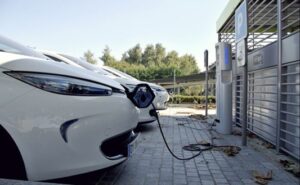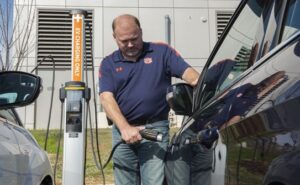Electric vehicles (EVs) represent a significant shift in automotive technology, primarily driven by the need for cleaner, more sustainable modes of transportation. As the heart of an EV, the battery not only dictates the vehicle’s range and efficiency but also its overall lifespan. Understanding the relationship between EV chargers and battery life is crucial for maximizing the potential of this technology. In this context, key terms such as ‘EV chargers’, ‘battery life’, and others will be defined to clarify the discussion.
How Do EV Chargers Impact Battery Life?
Grasping how different EV charging methods affect battery life is essential for both current EV owners and prospective buyers. The type of charger, charging speed, and the habits of the driver all play pivotal roles in determining the health and longevity of an EV battery.
What Types of EV Chargers Are Available?
There are primarily three types of EV chargers, each differing in power output and charging time:
- Level 1 Chargers: These are standard household chargers, typically requiring 120 volts, and can take 8-12 hours to charge a battery fully.
- Level 2 Chargers: More powerful than Level 1, these require 240 volts and can charge an EV battery in about 4-6 hours.
- DC Fast Chargers: The quickest available, these can charge an EV battery to 80% in as little as 20 minutes.
- Electric specialty vehicle battery chargers: Chargers are categorized based on their output voltage and current, which must match the vehicle’s battery specifications.
How Does Charging Speed Affect Battery Health?
The speed at which a battery is charged can significantly impact its overall health and longevity. Fast charging, while convenient, can lead to increased heat and stress on the battery, accelerating degradation. Studies have shown that frequent use of fast charging can reduce the battery’s capacity and shorten its useful life compared to slower, more controlled charging methods.
What Is the Role of Temperature Management During Charging?
Temperature management during charging is vital for maintaining battery health. High temperatures can cause battery materials to degrade more quickly, while too-low temperatures can lead to reduced charging efficiency and increased wear.
How Can Drivers Optimize Battery Health During Charging?
To optimize battery health during charging, drivers can:
- Use temperature-controlled environments for charging.
- Avoid charging to full capacity regularly.
- Prefer slower charging methods where possible, especially overnight.
Can Frequent Use of Fast Chargers Damage EV Batteries?

Research indicates that while occasional use of fast chargers is acceptable, frequent use can adversely affect the battery. This method of charging can stress the battery’s materials due to rapid heat generation and voltage fluctuations, which may decrease the overall cycle life and capacity.
What Are Manufacturers Doing to Mitigate These Effects?
Manufacturers are continually innovating to reduce the negative impacts of fast charging on batteries. Some of the advancements include:
- Improved battery management systems that optimize charging rates and monitor health.
- Development of advanced cooling systems to manage battery temperature during fast charges.
How Do Charging Habits Influence Battery Longevity?

Adopting smart charging habits is essential for extending the life of an EV battery. Charging an EV to only 80% capacity rather than full can significantly extend its lifespan. Similarly, maintaining a battery’s state of charge between 20% and 80% as much as possible is advisable to prevent stress and degradation.
Is It Better to Charge Overnight or Use Rapid Charging Stations?
Overnight charging using Level 1 or Level 2 chargers is generally better for battery health compared to rapid charging stations. The slower charge rates minimize heat buildup and stress on the battery.
How Does Regenerative Braking Contribute to Battery Health?
Regenerative braking helps extend battery life by converting a vehicle’s kinetic energy back into chemical energy for the battery. This not only conserves energy but also reduces the frequency and intensity of charge cycles needed.
What Are the Long-Term Effects of EV Charging on Battery Life?
In the long term, the effects of various charging methods can include notable differences in battery degradation and performance. Factors such as charging speed, frequency, and environmental conditions play significant roles in how quickly a battery ages.
What Are the Predictions for Future EV Battery Technology?
Looking ahead, advancements in battery technology are expected to improve both the lifespan and performance of EV batteries. Innovations may include new materials that reduce degradation rates and enhanced integration with renewable energy sources.
How Can EV Owners Maximize the Life of Their Batteries?

EV owners can maximize battery life by:
- Following manufacturer recommendations for charging and maintenance.
- Regularly updating vehicle software to improve battery management protocols.
- Avoid exposure to extreme temperatures as much as possible.
What Are the Best Practices for Battery Storage and Maintenance?
For long-term storage, maintaining the battery at a 50% charge in a cool, dry place is ideal. Regular check-ups and calibrations can also help maintain battery health over time.
How Important Is Charger Compatibility and Quality?

Using chargers that are fully compatible with the vehicle’s specifications is crucial. High-quality, manufacturer-approved chargers ensure optimal charging and reduce the risk of damage.
Conclusion
Understanding how different charging methods impact battery health is essential for maximizing the performance and longevity of electric vehicles. By adopting best charging practices and staying informed about new technologies, EV owners can ensure their vehicles remain efficient and durable in the long run.